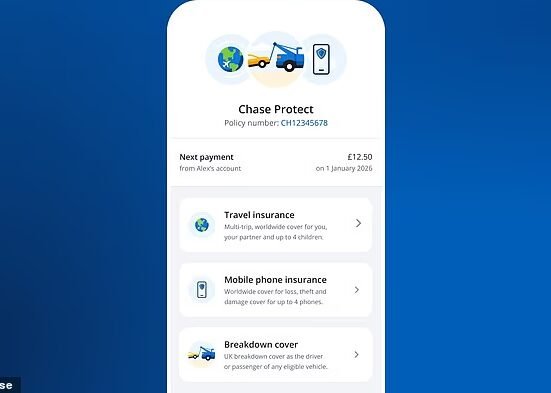New Hampshire is poised to update its building codes, the laws meant to keep homes and commercial buildings safe and comfortable.
But in the bill approaching Gov. Chris Sununu’s desk, the code that regulates the energy efficiency of new homes is set to stay at the 2018 version.
The energy conservation code has been the subject of a long-running debate in New Hampshire, intersecting with some of the state’s thorniest issues: the affordability of homes, the livability of our climate, and the cost of living.
Proponents of adopting the 2021 energy conservation code highlight that more efficient homes would help people reduce energy use, lowering monthly bills and reducing the climate-warming pollution that homes produce.
Federal agencies that insure mortgages adopted the codes after making the assessment that they won’t impact the affordability and availability of the housing they cover.
Some studies have shown that households save money in more energy efficient homes, though updates do have an increased upfront cost.
The codes have faced strong opposition, particularly from New Hampshire’s chapter of the Home Builders Association. In keeping with years of work pushing back on energy efficiency efforts, that group has come out in force against the 2021 codes across the country.
In New Hampshire, the Home Builders Association has testified to lawmakers that the 2021 codes would raise the cost of building homes too much, arguing they would make new homes unaffordable. The numbers they cite, from a survey of a handful of builders in the state, are about five times higher than federal estimates of the cost of upgrades.
All told, the 2021 codes would make homes almost 10% more efficient than the previous codes from 2018. The past two model codes adopted by the International Code Council barely made efficiency improvements for residential buildings.
The 2021 codes require efficiency improvements like more insulation and expanded testing for how much air leaks out of a building.
It could also improve the barriers that keep moisture out during the summer and in during the winter, said Paul Bemis, president of the state’s chapter of the American Society of Heating, Refrigerating and Air-Conditioning Engineers.
“An environment like New Hampshire varies quite dramatically,” he said. “Having a proper vapor barrier is key to indoor and human health.”
Lighting systems and their controls face new requirements, too.
Bemis is a proponent of the 2021 energy codes. He says the updates there are important to improving the indoor environment, since people spend 90% of their time indoors.
Federal officials have said the codes could help lower asthma rates and respiratory symptoms.
More efficient buildings also put less strain on the energy grid and draw less power from fossil fuels.
Buildings are responsible for about 40% of energy use in the United States, and account for around 35% of the carbon dioxide emissions that fuel warmer and wetter conditions in New Hampshire.
The 2021 codes, if implemented in New Hampshire, would reduce carbon dioxide emissions by nearly 660,000 metric tons over 30 years, according to a reportfrom the Pacific Northwest National Laboratory prepared for the U.S. Department of Energy.
That’s the equivalent of taking about 157,000 cars off the road, or almost as much of an emissions reduction as closing two gas-fired power plants.
“Climate change is upon us. We need to do something to try to reduce carbon emissions into the atmosphere in the building sector,” Bemis said. “It’s a big task. It’s going to take many years to do it. But we need to start somewhere.”
When it comes to cost, there’s agreement on one thing: making homes more energy efficient costs money.
The Pacific Northwest National Laboratory’s study estimates the increase in the cost to build a home to the 2021 energy conservation code instead of the 2015 energy conservation code is around $4,000 for a single family home in New Hampshire. (New Hampshire currently uses the 2018 version of the code).
For multi-family apartment or condo buildings, the increased cost of construction would be between about $1,200 and $1,700 per unit.
The cost varies based on the design of the building and the part of the state it is in, with communities in colder areas facing higher costs.
The study says the average person in the state would pay about $400 more in down payments and other up-front costs and would have an annual mortgage increase of about $140.
Compared to the 2015 energy conservation code, the 2021 code would save a homeowner a bit more than $500 a year on energy bills, according to the study, leading to positive savings by the second year of homeownership.
But in testimony in front of state lawmakers, Matt Mayberry, the head of the New Hampshire Home Builders Association, estimated the upfront costs of building a home to the 2021 standards would be much higher, around $20,000.
“Housing is the number one issue facing the state of New Hampshire,” Mayberry said. “Everyone is touched by this. By staying with the 2018 energy codes, that produces energy efficient homes at affordable prices that people can maintain and can afford to stay in.”
Mayberry said he came to the $20,000 estimate by asking six home builders in the state how much they thought the new codes would cost to implement.
“You’re weaponizing these codes for societal agendas and political agendas, and that’s wrong,” he said. “We think you can decide the home you want to live in.”
Home builders would build homes to more energy efficient standards if customers want them, Mayberry said. But, he said, the association believes that should be up to individuals.
New Hampshire’s consumer advocate, Don Kreis, has expressed his support for the codes and their ability to save people money. In a column on his website, he notes the Home Builders Association supported a law that reinstated energy efficiency programs through the state’s utilities in 2022.
“New Hampshire’s home builders – or, at least, their trade association – are perfectly happy to champion energy efficiency (and make some money installing energy efficiency measures) when the costs are buried in people’s utility bills,” Kreis wrote. “They grow less enthusiastic when they have to reflect those costs directly in the prices they charge buyers of new homes.”
Many of New Hampshire’s multi-family affordable housing buildings are already built to higher energy efficiency standards than the 2021 codes, said Ron Dapice, the head of New Hampshire Housing.
That organization helps first-time homebuyers with financing and works with developers to create affordable apartment buildings. Dapice hasn’t taken a position on what codes New Hampshire should adopt. But, he said, the state’s minimum standards don’t necessarily affect what kinds of affordable housing is being built.
“Most of these properties already exceed code requirements. Most of them are built to Energy Star standards. And the owners and contractors, I think, see the value long-term for affordable housing and keeping their operating costs as low as possible,” he said.
Dapice said the upfront cost of building more efficient buildings wouldn’t be borne by lower-income renters. Property managers set rents based on income, and Dapice said construction costs wouldn’t raise the gross rent – rent plus utilities – for folks living in those buildings. Landlords might pay for the utilities themselves, and raise the base rent instead.
If New Hampshire does not adopt the 2021 codes, the state will have different minimum standards than those adopted by the Department of Housing and Urban Development, the Department of Agriculture and the Veterans Administration.
The largest portion of homes affected by this change is likely to be those insured by the Federal Housing Administration. But the standards only apply to new construction, and Dapice said new construction homes are less likely to be purchased using FHA or USDA backed loans.
“It may not be an everyday occurrence if that type of buyer would be shut out of their financing options,” he said.
But if Fannie Mae and Freddie Mac were to adopt the 2021 codes, homeowners using conventional loans would also be subject to the new requirements.
“Then I think you could have a situation where buyers are, they want just a conventional loan and they can’t get it because their house isn’t built to the newest energy code,” Dapice said.
The Federal Housing Finance Agency, which oversees Fannie Mae and Freddie Mac, says they are considering ways to support more energy efficiency and have been conducting outreach.
That agency has come under pressure from New Hampshire Sen. Jeanne Shaheen to adopt the 2021 energy conservation code. In a letter earlier this year, she said those standards would improve health, reduce wasted energy and lower costs.
“Energy efficiency is the cheapest, fastest way to deal with our energy needs,” Shaheen said in an interview earlier this year. “If we’re going to address our long term energy needs, thinking about how we make those buildings more efficient is really important.”






